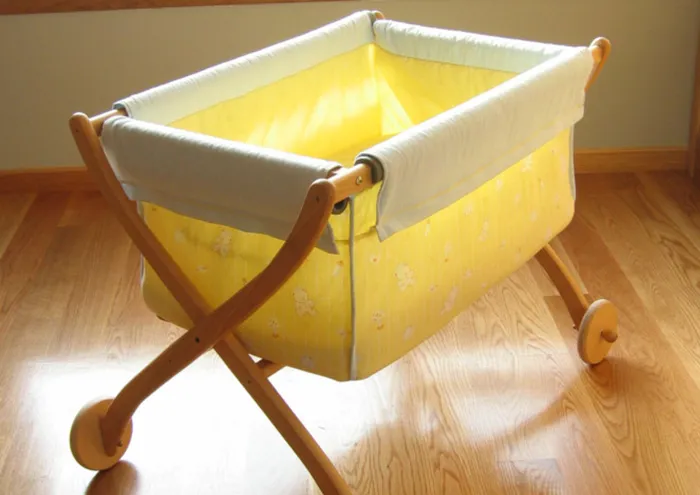“My son is happy I had a miscarriage’

The study, published online in the journal Obstetrics & Gynecology, showed 22 percent of respondents thought lifestyle choices such as smoking during pregnancy are the most common cause of miscarriage. The study, published online in the journal Obstetrics & Gynecology, showed 22 percent of respondents thought lifestyle choices such as smoking during pregnancy are the most common cause of miscarriage.
QUESTION: I have two children: a son aged almost four and a daughter who has just turned one. I was expecting a new baby and we told our son early on about this pregnancy. He reacted quite badly, saying it wasn’t good news and that he didn’t want a new baby.
Mind you, during the midwife’s first visit, he seemed excited, measuring my tummy, listening for a heartbeat and so on. However, I have just miscarried at 12 weeks. When we told him, he reacted by saying he was glad the baby got sick and died and that he didn’t want a new baby. He got very angry, kicking, etc.
We try to talk openly about feelings. I explained that I knew he felt those things and that this was okay, but even though he felt like that, nothing he said, did, thought, or wished for had made this happen.
I explained that his dad and I were angry and confused too. Today he told me, again, he was happy the baby had died and that I should have listened to him because he told me he didn’t want a new baby.
I’m anxious and finding it difficult to know how to deal with, or respond to, all of this in addition to my own grief.
I’m worried about the long-term effects of all of this.
I hope you can make some sense of it all and offer me some guidance.
ANSWER: I have no doubt that you and your son’s dad are indeed quite angry and confused as part of the many turbulent emotions that you are experiencing.
Some of those feelings may be related directly to the miscarriage and some may be related to your son’s reaction.
The fact that your son, initially, had been so unwelcoming of the idea of a little brother or sister was possibly hurtful and disappointing.
Now you have the tragedy of your baby’s miscarriage with the addition of his apparent vindictiveness in seeming so angrily pleased that the baby has died.
It is a really awful thing to have a baby die. The pain of what might have been, or who might have been, is often the most difficult to cope with.
You and your husband or partner will be grieving the death of your baby. You may have feelings like shock, denial, sadness, despair and anger.
In time you may be able to accommodate this loss and perhaps feel like you can move on a bit, but for now, you may just feel the full weight of the awfulness of the tragedy.
It may be too much for you to worry about your son’s emotional reaction in the midst of your own feelings.
I think it is okay to prioritise yourself, so that later you will be in a better position, emotionally, to support your son.
Your son’s first reaction to the news that a new baby was on the way is common enough.
Although many children are very excited and welcoming of new siblings, there will always be some who are initially rejecting.
Some children just don’t want to share their parents further or expand the family to incorporate another sibling’s needs.
It is understandable that children might feel this way.
A little bit of selfish self-preservation in a child makes sense to me. It is only as children grow accustomed to the reality of the new baby that they can soften and warm to the idea that actually, a new brother or sister is okay to have around.
In many ways the baby in your tummy never became real for him. Four-year-olds think in concrete terms.
Although he heard a baby’s heartbeat on a monitor, he didn’t touch or see a baby and so I don’t think that your son will feel that he caused the baby to die.
The abstract concept that this baby was alive in your tummy, but has now died, and that you and his dad are sad about it just may not have breached his consciousness.
In fact, he may be frustrated that you seem sad when, from his point of view, this miscarriage is actually something of a relief.
From your perspective this may seem cruel and unfeeling, but you have to remember that he doesn’t have the ability to think abstractly about what may have been, in the manner that you and your partner can.
The death of your baby is a tragedy for you. I think it is especially hard to accept that your son doesn’t share in your experience of the heartache involved.
While he may not share it now, that is not to say that he can’t gain a greater awareness and appreciation of it as time passes. As you experience your grief you will find that you probably do speak more about it with him, if only to explain to him why you act or react as you will.
You would not be denying his experience, but you will be sharing more of your own.
We can’t dictate to your son how he must, or should, feel. Detached and somewhat cruel though his feelings may appear to be, they fit his experience of his world.
With time, understanding and further open talking about your feelings, you may find that he can begin to see the world a bit more from your perspective. – Irish Independent